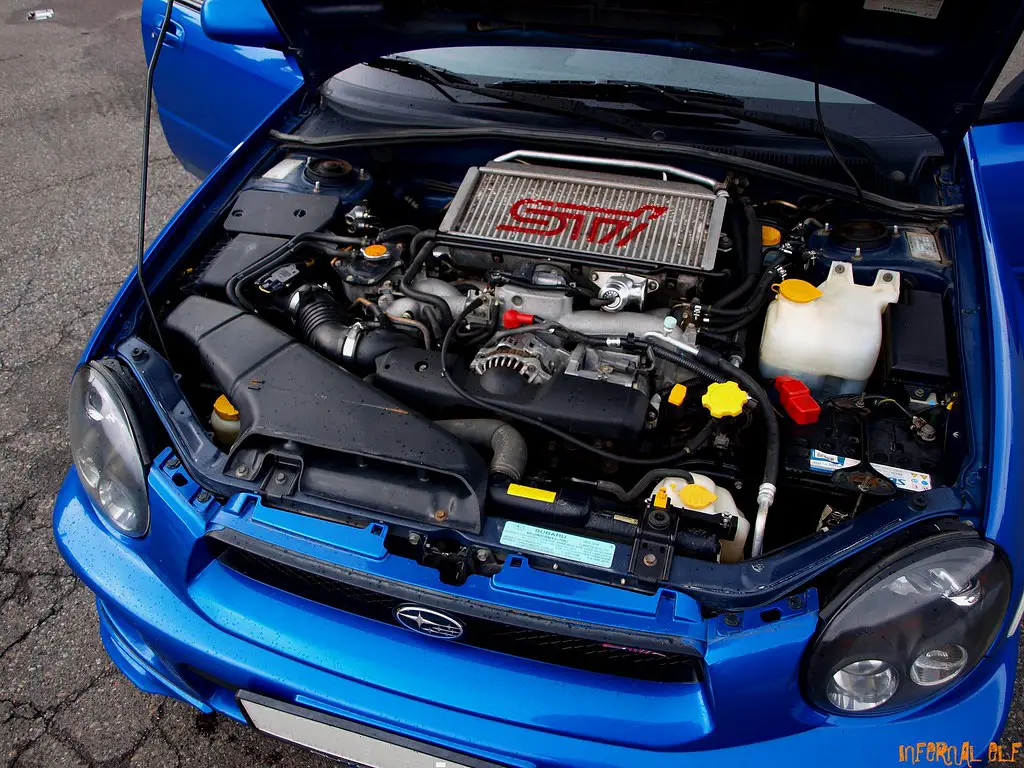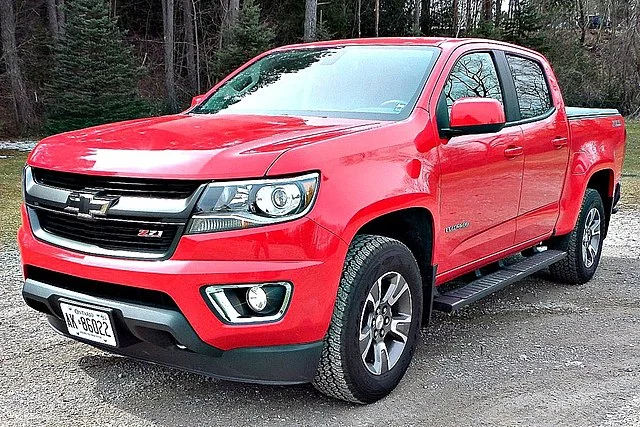Subaru is a popular brand that has loyal customers and a reputation for making reliable and safe cars.
However, not all Subaru models are flawless, and some of them have engine problems that can be costly and frustrating to deal with.
In this article, we will explain what are the Subaru engine problems, what causes them, and how to prevent or fix them.
We will focus on the 2.5 boxer engine, which is the most common engine used by Subaru, and the one that has the most reported issues.
Whether you are a current or potential Subaru owner, you will find this article useful and informative.
What Are The Subaru Engine Problems?
-
Excessive Oil Consumption
One prevalent issue reported by some Subaru owners is excessive oil consumption. Certain Subaru models, such as the Impreza and Outback, have been known to consume more oil than expected. This can lead to various concerns, including potential engine damage and decreased fuel efficiency. Excessive oil consumption may necessitate more frequent oil checks and changes to ensure the engine’s optimal performance.
-
Head Gasket Failure
Another common engine-related problem in certain Subaru models, particularly those equipped with the EJ25 engine, is head gasket failure. The head gasket is a critical component that seals the engine cylinders, preventing the mixing of coolant and oil. When the head gasket fails, it can result in coolant leakage, engine overheating, and potential damage. Owners of Subaru vehicles experiencing head gasket issues are advised to address them promptly to avoid more severe consequences.
-
Timing Belt and Chain Problems
Timing belt and chain problems have also been reported in some Subaru models. These components are responsible for synchronizing the internal components of the engine, ensuring smooth operation. If the timing belt or chain fails, it can lead to serious engine damage. Subaru recommends regular inspection and timely replacement of the timing belt to prevent these issues, emphasizing the importance of adhering to recommended maintenance schedules.
-
Turbocharger-Related Issues
Subaru vehicles equipped with turbocharged engines have faced turbocharger-related problems reported by some owners. Turbochargers enhance engine efficiency by forcing more air into the combustion chamber, increasing power output. However, issues such as oil leaks and turbocharger failures have been observed. Regular maintenance and prompt repairs are essential to address these concerns and prevent potential damage to the turbocharging system.
-
Continuously Variable Transmission (CVT) Concerns
The reliability of Subaru’s continuously variable transmission (CVT) has been a topic of discussion, with some models facing criticism for various issues. CVTs are designed to provide smooth and fuel-efficient performance, but some Subaru owners have reported problems such as hesitation, shuddering, and premature failure. Adherence to the recommended service intervals and regular maintenance checks can help mitigate these concerns and ensure the longevity of the CVT.
Important: AT Temp Oil Light Flashing Subaru
Are Subaru engines reliable?

Subaru has built a reputation for producing reliable and durable vehicles, and many Subaru owners enjoy trouble-free driving experiences. The brand is particularly known for its symmetrical all-wheel-drive system, which enhances stability and performance in various driving conditions. However, like any car manufacturer, Subaru has faced some challenges, and certain models have been associated with specific engine-related issues.
One common concern reported by some Subaru owners is excessive oil consumption, particularly in certain models like the Impreza and Outback. While not all Subaru vehicles experience this issue, it has been a point of discussion within the community. Subaru owners need to be aware of this potential problem and address it through regular maintenance, including timely oil changes and checks.
Head gasket failures have been another area of focus, especially in models equipped with the EJ25 engine. A faulty head gasket can lead to coolant leakage and engine overheating, posing potential risks. However, Subaru has taken steps to address these concerns in newer models, and owners are advised to stay vigilant and address any signs of head gasket issues promptly.
Despite these reported issues, it’s crucial to note that Subaru has demonstrated a commitment to addressing concerns through recalls, improved designs, and proactive customer support. Many Subaru owners attest to the reliability of their vehicles, praising their performance in various conditions and the longevity of the engines.
What is the recommended maintenance schedule for Subaru engines?
The recommended maintenance schedule for Subaru engines depends on the specific model and year of your vehicle, but in general, Subaru suggests following a six-month or 6,000-mile interval for service and inspections. Some of the common maintenance items that Subaru engines require are:
- Engine oil and filter change: This should be done every six months or 6,000 miles, whichever comes first. Subaru recommends using Genuine Subaru Oil and Filters, which are specially designed for the SUBARU BOXER ® engine.
- Spark plug replacement: This should be done around the 60-month or 60,000-mile interval, depending on your Subaru model. Check your Warranty & Maintenance Booklet for specific intervals. Subaru recommends using Genuine Subaru Spark Plugs, which are optimized for the SUBARU BOXER ® engine.
- Drive belt inspection: This should be done every 30 months or 30,000 miles, whichever comes first. The drive belt powers components like the alternator, and in older Subaru vehicles, the power steering pump and water pump. Subaru recommends using Genuine Subaru Drive Belts, which are durable and resistant to wear and tear.
- Engine coolant replacement: This should be done at 137,500 miles or 11 years, whichever comes first. Subaru recommends using Subaru Long Life Coolant, which is formulated to protect the SUBARU BOXER ® engine from corrosion and overheating.
These are some of the major maintenance items that Subaru engines need. To find out more about the specific maintenance schedule for your Subaru model, you can visit the Vehicle Resources page on Subaru.com, where you can access the Owner’s Manual and maintenance schedule using your Vehicle Identification Number or the Year, Model, and Trim level of your vehicle.
You can also visit your nearest Subaru retailer, where the factory-trained technicians can provide you with expert service and advice. By following the recommended maintenance schedule, you can keep your Subaru engine running at its best and enjoy the performance, safety, and reliability that Subaru is known for.
What year did Subaru have engine problems?
Some of the Subaru model years that had engine problems are:
- 2012-2017 WRX and WRX STI models equipped with the EJ25 2.5-liter turbocharged four-cylinder engine. These models had a defect that could cause rod bearing failure and engine seizure.
- 2013-2014 Forester models equipped with the 2.5-liter engine. These models had excessive oil consumption issues due to defective piston rings.
- 2012-2013 Crosstrek and Impreza models equipped with the 2.0-liter engine. These models also had excessive oil consumption issues.
These are some of the Subaru model years that had engine problems. However, not all Subaru engines are unreliable, and some of the newer models have improved performance and durability. If you are interested in buying a Subaru, you should check the vehicle history, maintenance records, and recall status of the specific model and year you are considering.
What is so special about the Subaru engine?

The Subaru engine is special because it uses a Boxer layout, which is also known as a horizontally opposed or flat engine. This means that the cylinders are arranged on both sides of the crankshaft, and they move like a boxer’s punching motions. This design has several advantages, such as:
- It creates a lower center of gravity and less drag, which improves the handling, stability, and road grip of the vehicle.
- It distributes the weight more evenly in the engine bay, which enhances the balance and reduces the body roll of the vehicle.
- It has long-proven durability and reliability, as Subaru has been developing and refining the Boxer engine for over 50 years.
- It has a distinctive sound and performance, as the Boxer engine produces a smooth and powerful torque curve.
Subaru is one of the few automakers that still use the Boxer engine, and it has become a signature feature of its vehicles. The Boxer engine is also used by some Porsche models, and it was originally developed by Karl Benz, the inventor of the first automobile. The Boxer engine is a unique and innovative engine layout that sets Subaru apart from other car brands.
Are Subaru engines expensive to maintain?
Subaru engines can be expensive to maintain for several reasons, such as:
- They use a Boxer layout, which is more complex and difficult to access than a traditional engine.
- They have an All-Wheel Drive (AWD) system, which requires more components and maintenance than a front-wheel-drive or rear-wheel-drive system.
- They use specialized parts that are not as widely available as parts for other car brands.
- They have some common problems that can cause costly repairs, such as rod bearing failure, oil consumption, head gasket failure, and oil leaks.
Based on pricing received from a Boston-area Subaru dealer, Car Talk calculates the 100,000-mile maintenance costs for a Subaru Forester will be $7,172, including tire and brake replacements. This is higher than the average maintenance costs for other car brands, which range from $4,000 to $6,000. Therefore, Subaru engines can be considered expensive to maintain compared to other engines.
Important: What Is The Subaru Head Gasket Replacement Cost?
Conclusion
Subaru engine problems are not uncommon, and they can affect the performance, safety, and reliability of your vehicle.
Some of the most common problems are rod-bearing failure, oil consumption, head gasket failure, and oil leaks.
These problems can be caused by various factors, such as the Boxer engine layout, the All-Wheel Drive system, the specialized parts, and the lack of proper maintenance.
To prevent or fix these problems, you should follow the recommended maintenance schedule, use quality oil and filters, and check for any signs of trouble regularly.
If you notice any symptoms of engine failure, you should take your Subaru to a qualified mechanic as soon as possible.
By doing so, you can enjoy the benefits of the Subaru Boxer engine, such as the lower center of gravity, better balance, long-proven durability, and distinctive sound and performance.




